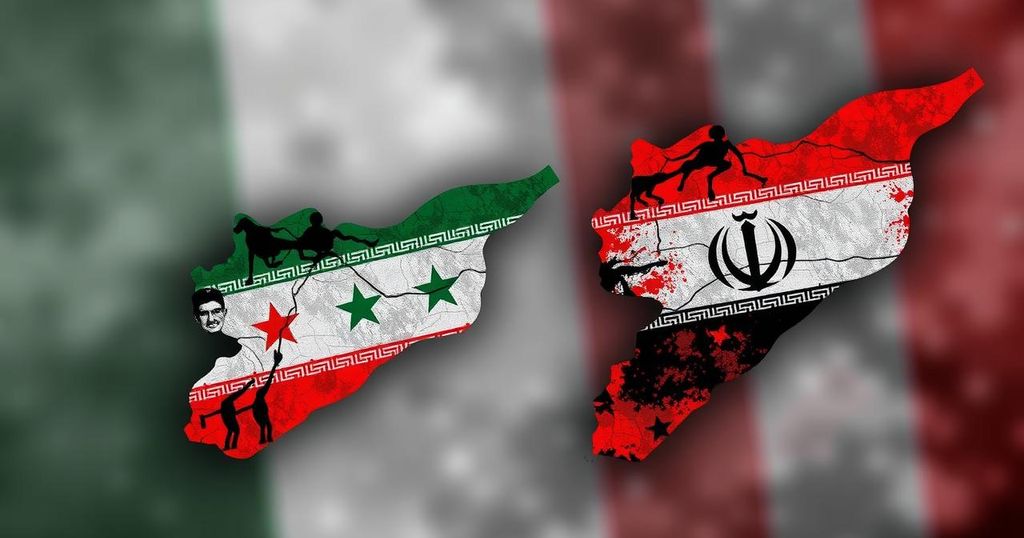Despite ongoing Israeli airstrikes, efforts by the U.S. and Gulf nations to weaken Syria’s ties with Iran are encountering difficulties, especially following recent advances by rebel forces in Aleppo. Assad’s challenges may paradoxically strengthen his alliance with Iran as he seeks support to maintain his regime amid increasing instability.
In the face of intensifying Israeli bombardments, diplomatic efforts by the United States and Gulf nations aimed at persuading Syrian President Bashar al-Assad to distance himself from his strategic alliances with Iran and Hezbollah are facing significant challenges. This dual strategy was designed to capitalize on perceived vulnerabilities within Iran’s regional network due to ongoing attacks. However, recent unexpected gains made by resurgent rebel forces, notably the seizure of Aleppo, have complicated these ambitions. Regional analysts suggest that rather than reducing his alliances, Assad may feel an increased reliance on Iran and its affiliates for survival amid growing instability in Syria.
The conflict in Syria remains a pivotal aspect of broader regional dynamics, primarily because it functions as a vital conduit for Iranian support to Hezbollah in Lebanon. Thus, neutralizing this corridor is paramount for Israeli security, and safeguarding it is equally crucial for Iran, which remains committed to its partnership with the Assad regime. In light of the heightened military actions against Hamas, Israel, supported by the U.S., sought to exploit these developments to diminish Iran’s influence. Nonetheless, indications suggest that despite Israel’s military achievements, Iran appears to be recalibrating its approach, promoting a line of reduced conflict. Meanwhile, Russia’s overshadowed role in Ukraine has seemingly emboldened regional powers to reconsider alliances, yet Assad’s recent struggles may impede his willingness to forsake Iran’s support.
The ongoing situation in Syria is heavily influenced by the complex interplay of regional alliances, particularly between Syria, Iran, and Hezbollah. Following a decade of civil unrest and conflict, Assad has consistently relied on Iranian military and logistical support to retain his grip on power. In this context, both Israel and the U.S. have pursued strategies aimed at weakening this alliance, hoping to diminish Iran’s power projection in the region. Recent Israeli military operations that targeted key Iranian allies appear to have created a fleeting opportunity for political maneuvering; however, the resurgence of rebel forces has introduced significant unpredictability into the geopolitical landscape.
The intricate relationship between Syria and Iran faces new trials in light of recent developments, including Israeli military actions and the resurgence of rebel forces. Despite efforts by the U.S. and Gulf nations to persuade President Assad to shift his allegiances, the current landscape suggests that he may find himself more reliant on Iran than before, as rebel successes strain his power amid insecurities. As the regional balances continue to shift, the enduring relevance of Syria as a critical battleground for Iranian influence becomes increasingly evident.
Original Source: www.nytimes.com






